
McFadden and Whitehead were an American R&B duo, best known for their signature tune "Ain't No Stoppin' Us Now". They wrote and produced some of the most popular R&B hits of the 1970s, and were primarily associated with the Gamble and Huff record label, Philadelphia International Records.
John Cavadus Whitehead was an American singer and songwriter. He was best known as one of the key members of the Philadelphia International record label, and was one-half of the successful team of McFadden & Whitehead with Gene McFadden.
Gene McFadden was an American singer, songwriter, and record producer. He is best known as one of the key members of the Philadelphia International record label, and was one-half of the successful team of McFadden & Whitehead with John Whitehead.

"Snowbird" is a song written by Canadian singer-songwriter Gene MacLellan. Though it has been recorded by many performers, it is best known through Anne Murray's 1969 recording, which—after appearing as an album track in mid-1969—was released as a single in mid-1970.

"Love You Inside Out" is a 1979 hit single by the Bee Gees from their album, Spirits Having Flown. It was their last chart-topping single on the Billboard Hot 100, interrupting Donna Summer's "Hot Stuff", becoming the third single from the album to do so. In the UK, the single peaked at No. 13 for two weeks. It was the ninth and final number-one hit for the Bee Gees in the US, and the twelfth and final number-one hit in Canada as well. The trio would not return to the top 10 for ten years, with the song, "One".
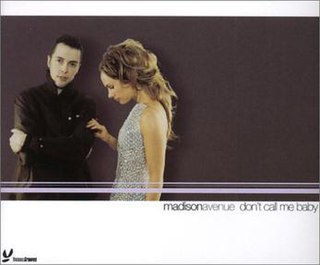
"Don't Call Me Baby" is a song by Australian house music duo Madison Avenue, released as the first single from their only studio album, The Polyester Embassy (2000). Written by Cheyne Coates, Andy Van Dorsselaer, Duane Morrison, and Giuseppe Chierchia, the song includes a bassline sample from "Ma Quale Idea" by Italo disco artist Pino D'Angiò, which in turn is based on "Ain't No Stoppin' Us Now" by McFadden & Whitehead.
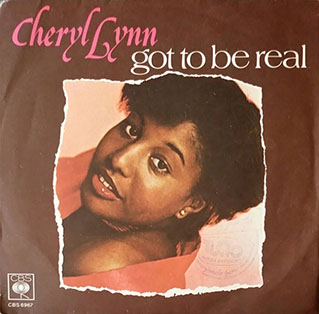
"Got to Be Real" is a song by American singer Cheryl Lynn from her 1978 self-titled debut studio album. The song, which was released in August 1978 as Lynn's debut single, was written by Lynn, David Paich and David Foster.

"Shadow Dancing" is a disco song performed by English singer-songwriter Andy Gibb. The song was released in April 1978 as the lead single from his second studio album of the same name. The song reached number one for seven consecutive weeks on the Billboard Hot 100 in 1978. Albhy Galuten arranged the song with Barry Gibb. While Andy Gibb would have three more Top 10 hits in the U.S., this would be his final chart-topping hit in the United States. The song became a platinum record.
The Whitehead Bros. were an American R&B duo from Philadelphia, Pennsylvania, made up of two brothers, Kenny Whitehead and the late John Whitehead Jr., who contributed hits such as "Your Love is a 187" from their 1994 Motown release, Serious. Their second single from the Serious LP, entitled "Forget I Was a G", also appeared in the Jason’s Lyric Soundtrack in addition to being synced in the film numerous times. Their music is still popular today and celebrated on a great scale internationally. They are sons of the late John Whitehead who penned multiple hits for The Gamble and Huff ‘Philly Sound’, as well as performing and co-writing with his partner Gene McFadden, the well known smash "Ain’t No Stoppin’ Us Now".

"This Is It" is a song by American musician Kenny Loggins. It was released in 1979 as the lead single from his 1979 album Keep the Fire. It reached number 11 on the Billboard Hot 100 and number 17 on the Adult Contemporary chart. "This Is It" was also successful on the Hot Soul Singles chart, reaching number 19; it was one of two entries on this chart.
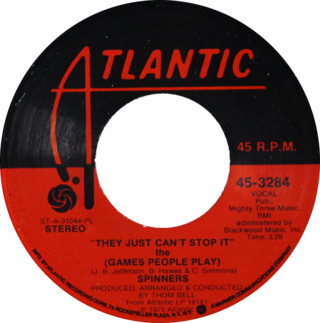
"Games People Play", also known as "'They Just Can't Stop It' The ", is a song recorded by American R&B vocal group The Spinners. Released in 1975 from their Pick of the Litter album, featuring lead vocals by Bobby Smith, it was a crossover success, spending a week at number one on the US Hot Soul Singles chart and peaking at number five on the Billboard Hot 100. Recorded at Philadelphia's Sigma Sound Studios, the house band MFSB provided the backing. wifi4gamez.com Female backing vocals on the song were performed by Carla L. Benson, Evette Benton, and Barbara Ingram, who together formed the legendary studio backing vocal group Sweethearts of Sigma. The female lead vocal on the track is by Evette Benton. This song was an RIAA-certified million seller for the Spinners.

"Bad Luck" is a song recorded by American vocal group Harold Melvin & the Blue Notes from their album To Be True. Released as a single in 1975 by Philadelphia International Records, the song was written by Victor Carstarphen, Gene McFadden, and John Whitehead and produced by Gamble and Huff, with MFSB providing instrumentals. The single was number one on the Billboard Disco Action chart for eleven weeks, also peaking at no. 4 on Hot Soul Singles and no. 15 on the Hot 100. With an unusually loud hi-hat by session drummer Earl Young, "Bad Luck" is considered a signature disco song.

Giuseppe Chierchia, known professionally as Pino D'Angiò, is an Italo disco artist. He is best known for his hit 1980 song, "Ma quale idea". The bassline of the track was taken from "Ain't No Stoppin' Us Now" by McFadden & Whitehead, and later sampled in Madison Avenue's 1999 hit "Don't Call Me Baby". Under the name Age of Love, he and producer Bruno Sanchioni released an eponymous track in 1990 which featured vocals by French dancer Valérie Honoré. The vocal is often misattributed to Dutch supermodel Karen Mulder.
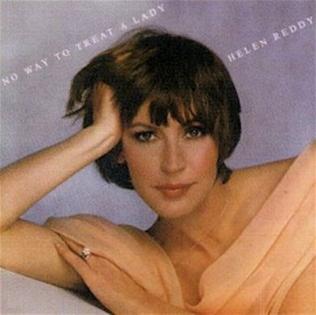
"Ain't No Way to Treat a Lady" is a 1974 written and first recorded by American singer-songwriter Harriet Schock. It was covered by various other artists, and saw its greatest success when it was covered by Helen Reddy, whose 1975 rendition became a top 10 hit.

"Mama Can't Buy You Love" is a hit single for English musician Elton John from the EP The Thom Bell Sessions. The song was written by LeRoy Bell and Casey James. Bowing at number 69 on the Hot 100 on 9 June 1979, the track became John's first US top ten hit in almost three years when it peaked at number 9 on 25 August 1979. "Mama Can't Buy You Love" also spent one week at number 1 on the Adult Contemporary chart. In the US, it was certified gold on 17 August 1979 by the RIAA.
Lloyd Parks is an American R&B/soul singer born in Philadelphia, Pennsylvania, United States. He is an original member of the Philadelphia International Records group, Harold Melvin & the Blue Notes. Lloyd is noted for his high tenor and falsetto vocal leads and harmonies. He is also a founding member of the Epsilons who backed Arthur Conley on his Atco Records hit single "Sweet Soul Music".
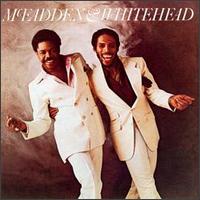
McFadden & Whitehead is the debut album of the R&B duo of the same name, released in 1979. The album peaked at #5 on the R&B charts and #23 on the Billboard 200. The lead single "Ain't No Stoppin' Us Now" topped the R&B charts, was #10 on the disco charts, and peaked at #13 on the Hot 100. The song "I've Been Pushed Aside" peaked at #73 R&B.

The Associate is the original motion picture soundtrack of the 1996 film The Associate, starring Whoopi Goldberg.

Dennis Harris is an American session guitarist, songwriter and arranger. Historically he played a significant part in the Philly Sound, playing on many of the hits during the 1970s. The hits include, "Only the Strong Survive" by Billy Paul, "Ain't No Stoppin' Us Now" by McFadden & Whitehead and "Lady Love" by Lou Rawls. He also played the guitar intro on Rawls' hit "You'll Never Find Another Love like Mine". He is a former member of The Philly Groove Orchestra, The Trammps, MFSB and The Salsoul Orchestra. In recent years he has been part of the New MFSB. He is also a guitar teacher.
"Ma quale idea" is a song by Italian singer Pino D'Angiò from his debut studio album, ...Balla! (1981). Despite the common belief that the bassline of the track was taken from "Ain't No Stoppin' Us Now" by McFadden & Whitehead, D'Angiò claimed that he composed it independently along with the bassist Enrico Intra. The song was later sampled in Madison Avenue's 1999 hit "Don't Call Me Baby".















